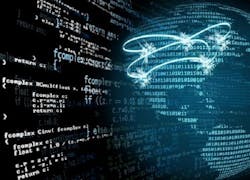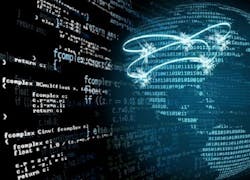Imagine that: People are critical for digital success
A lot of folks fear that the increasing “digitization” of so many sectors of the U.S. economy – and that includes trucking – means that the need for people will quickly go by the wayside.
In sum: computers replace humans. End of story.
Yet that might be the wrong conclusion, if the results of a recent survey by global consulting firm Accenture are to be believed.
Indeed, according to the group’s Accenture Technology Vision 2016, it’s the companies that develop a “people first” approach that will be the winners in the so-called “digital economy.”
“Companies that embrace digital can empower their workforce to continuously learn new skills to do more with technology and generate bigger and better business results,” noted Paul Daugherty, Accenture’s chief technology officer
In a companion survey of more than 3,100 business and information technology (IT) executives worldwide, Accenture found that 33% of the global economy is already being affected by the “digital revolution,” with 86% of survey respondents anticipating that the pace of technology change will only increase at a rapid – some even calling it “unprecedented” – rate over the next three years.Daugherty noted in the report that companies can often feel overwhelmed by the pace of technology change, experiencing “digital culture shock” at the prospect of keeping up with the competition. However, companies that adopt a “people-first” approach are the ones Accenture believes will not only survive but thrive in increasing digitized business environments.
A different survey conducted by consulting firm IHS added another dynamic to this “digital” discussion: the cost of IT downtime.
In the firm’s The Cost of Server, Application, and Network Downtime: North American Enterprise Survey and Calculator, the “aggregate” cost of IT downtime – such as server, application, and network outages or degradations – is costing North American organizations $700 billion per year.
“Our research found that the cost of ICT downtime is substantial, from $1 million a year for a typical mid-size company to over $60 million for a large enterprise,” said Matthias Machowinski, research director for enterprise networks and video at IHS. “The main cost of downtime is lost productivity and revenue.”
Here are a few examples:
- Network interruptions are the biggest culprit of downtime and have far-reaching consequences: applications, servers and devices may all be working fine, but they can’t communicate with each other when the network is down.
- On average, survey respondents experience five downtime events per month, and 27 hours of downtime per month.
- Organizations are making changes to reduce the impact of downtime, from investing in early-detection capabilities to improving redundancy, training and hiring new people, and implementing backup processes that don’t rely on IT systems.
Note the last sentence in the final bullet point above: “training and hiring new people and implementing backup processes that don’t rely on IT systems.”
Suddenly, human flesh and blood seems to be even more vital to keeping all this IT under control and moving in the right direction.
By the by, Accenture highlighted five “people first” technology trends that will be essential to business success in the digital economy. Not all apply to trucking, but are worth thinking about:
- Intelligent automation: Leaders are embracing automation –powered by artificial intelligence (AI), robotics and augmented reality – to fundamentally change the way their business operates and drive a new, more productive relationship between people and machines. Significant investments are well underway with 70% the respondents to the firm’s survey saying they’ve increased AI-related technology investments compared to two years ago, with 55% planning on using machine learning and embedded AI solutions extensively.
- The rise of the “liquid” workforce: By exploiting technology to enable workforce transformation, leading companies will create highly adaptable and change-ready environments that are able to meet today’s dynamic digital demands. The competitive advantage offered by a “liquid workforce” is apparent as survey respondents indicated that “deep expertise for the specialized task at hand” was only the fifth-most-important characteristic they required for employees to perform well in a digital work environment. Yet other qualities such as “the ability to quickly learn” or “the ability to shift gears” are ranked higher. [FYI: Nice to see old fashioned trucking terminology used in an IT study!]
- The “platform” economy: The “power” of IT will help develop “platform-based business models” to capture new growth opportunities, driving the most profound change in the global macroeconomic environment since the Industrial Revolution, Accenture believes. This is reinforced by 81% of our survey respondents who agree that platform-based business models will become part of their organization’s core growth strategy within three years. Yet people will be needed to make it all work smoothly.
- Predictable disruption: Fast-emerging digital ecosystems are creating the foundation for the next wave of “disruption” by straddling markets and blurring industry boundaries. Yet forward-thinking leaders can proactively predict these ecosystem trajectories to gain a competitive advantage. Companies are already significantly or moderately experiencing ecosystem disruption, with 81% of survey respondents indicating that they are seeing this in their industry.
- Digital Trust: Here’s a big one as “trust” is viewed as the “cornerstone” of the digital economy noted 83% of the respondents to the firm’s survey. To gain the trust of individuals, ecosystems and regulators in this new landscape, businesses must focus on “digital ethics” as a core strategy as better security alone won’t be enough. That will require people, too.
All of that is certainly a lot to chew on. But chew on it in some fashion we must, for the digitization of the business world is only going to continue.

